This website uses cookies so that we can provide you with the best user experience possible. Cookie information is stored in your browser and performs functions such as recognising you when you return to our website and helping our team to understand which sections of the website you find most interesting and useful.
Sarny Territorial Community
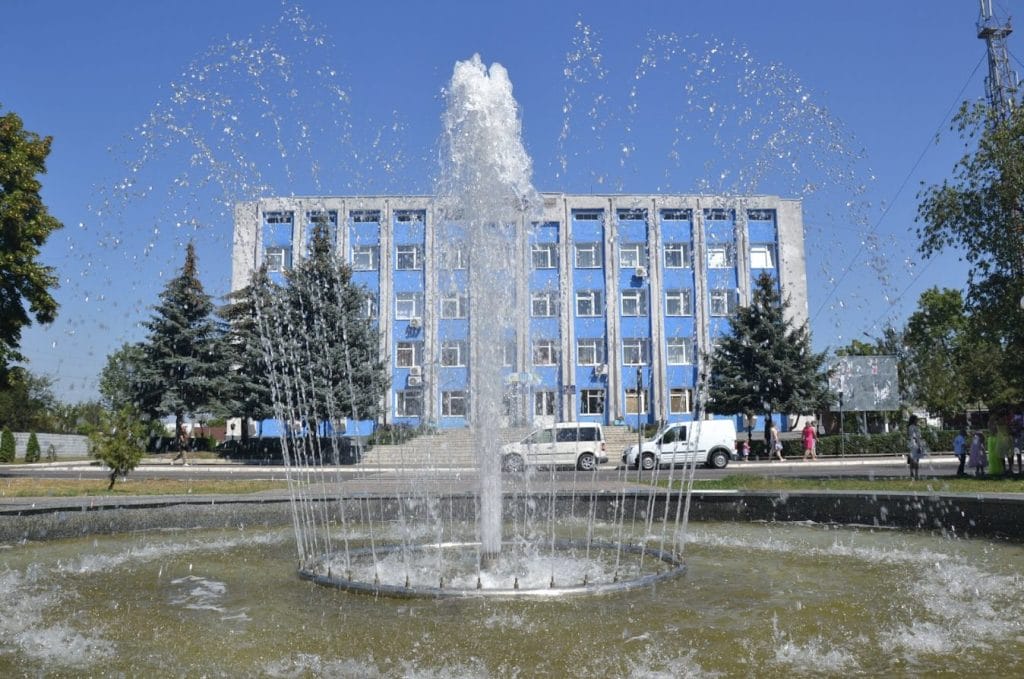
The Sarny urban territorial community is located on the territory of Sarny District, Rivne Region.
The total area of the territory is 819.8 km2.
According to the Register of the Territorial Community of the State Migration Service, the population of the community is 66,073 people.
Women: 33,254.
Men: 31,534.
IDPs: 1,285.
The community includes 36 population centers and has its administrative center in the town of Sarny.
History
The town of Sarny is located 312 km from the capital of Ukraine, Kyiv, and 90 km from the regional center of Rivne, between the Sluch and Horyn rivers.
The territory of the community was the contact area where two ancient Slavic tribes – the Drevlians and the Volhynians – lived. According to one of the legends, the settlement of Sarny got its name from the wild roe deer – “sarna”, which were abundant in the sleepy Polish forests. According to another version, the name of Sarny comes from the Old Slavic pre-Christian male name Sarna and has a plural form, since the inhabitants of the settlement were descendants of this person.
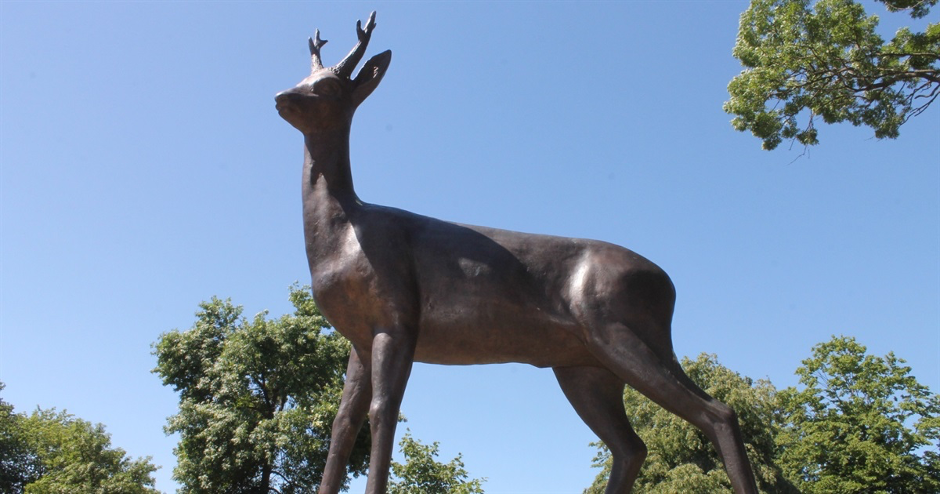
Since the second half of the 17th century, Sarny was owned by the Prushinski family of Polish nobles. In 1883, the construction of the Polissian Railway began here.
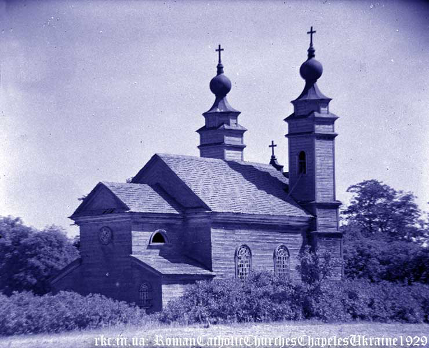
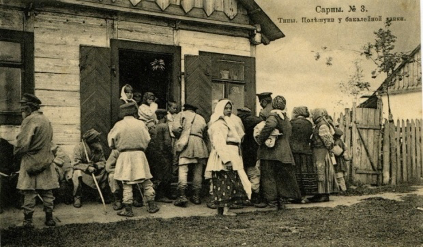
For some time, the town was the capital of the Ukrainian People’s Republic. On February 9, 1918, the government of the Ukrainian People’s Republic and the Small Council with the remnants of Ukrainian troops left Kyiv in connection with the Bolsheviks’ offensive.
The town of Sarny temporarily became the seat of the central bodies of the Ukrainian People’s Republic. The activity of the Central Rada in Sarny arouses admiration and respect. All this time, it did not stop its legislative work and adopted several important laws imbued with the idea of strengthening Ukrainian statehood and traditions.
Among the adopted laws were: the Law on the Government of Ukraine, the Law on Ukrainian Citizenship, the Law on the Administrative Division of the Area into Lands (thirty lands), the Law on the Restoration of the old monetary unit of the Ukrainian State – the hryvnia, the Law on the State Emblem of Ukraine – the Trident.
While at the head of the Central Rada, Mykhailo Hrushevsky fought for the right of the Ukrainian people to statehood.
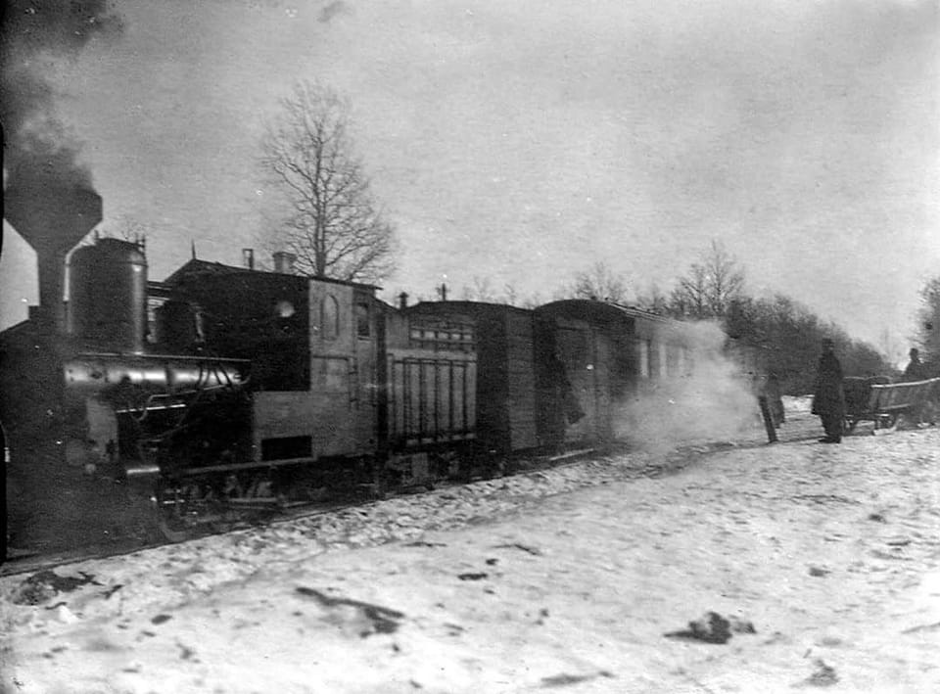
In 1921, the town of Sarny was transferred to the Polish Voivodeship, and in 1930, passed to the Volyn Voivodeship of the Second Polish-Lithuanian Commonwealth. There was a glass factory here. The Sarny Border Guard Corps was stationed on the territory of the Sarny region.
In 1939, Sarny received the status of a town.
The occupation of the town by German troops began on July 6, 1941. Subsequently, 13,711 civilians were killed in prepared pits behind the railway track.
After the de-occupation in 1944, the work of the Sarny machinery and tractor station was gradually resumed. A pedestrian bridge was built across the railway, connecting both parts of the town. Food industry enterprises, a forestry farm, and a meat processing became operational. A Ukrainian school was opened, training in a craft school was started. In 1945, a children’s library and a railwaymen’s club were opened. Later, the first town buses started running in Sarny.
At the end of the 20th century, a base for the elimination of SS-20 missiles was created in the town. It was here that the last medium-range missile launcher was destroyed.
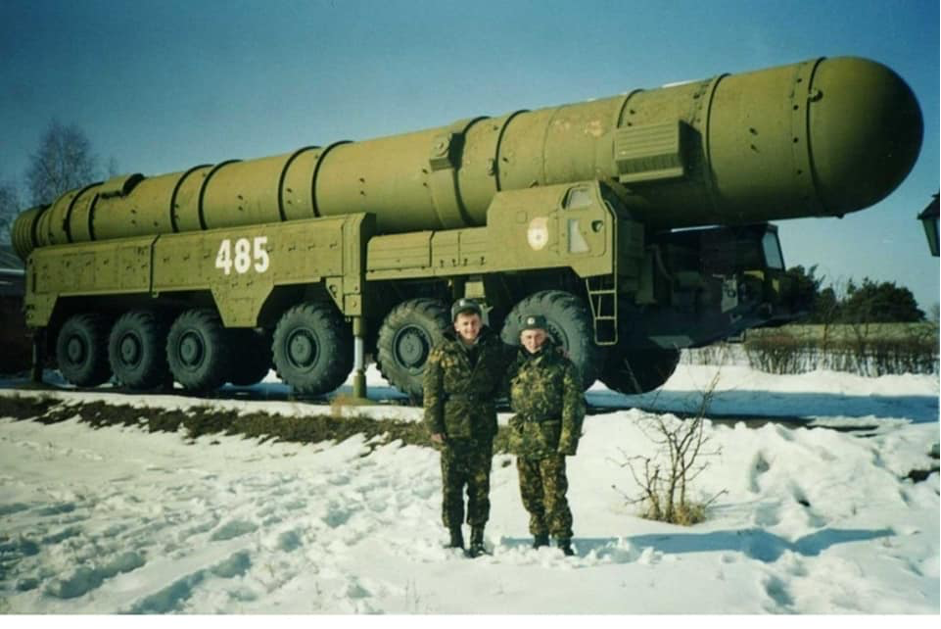
The geographical location between the rivers Sluch and Horyn, as well as at the intersection of important railway lines, made Sarny an important logistical and economic center. The development of the railway, especially from the late 19th century, contributed to economic development, population growth and manufacturing industry expansion in the region.
The Sarny community played an important role as a meeting place of different cultures and peoples. This multiculturalism enriched the community with unique traditions and cultural values. The presence of numerous historical monuments, including archaeological finds, barrows, and an ancient Rus settlement, indicates a deep history that can attract researchers, tourists, and historians.
Built in 1725, the Holy Trinity Church in the village of Dorotychi (now Sarny) is a monument of wooden architecture of national importance.
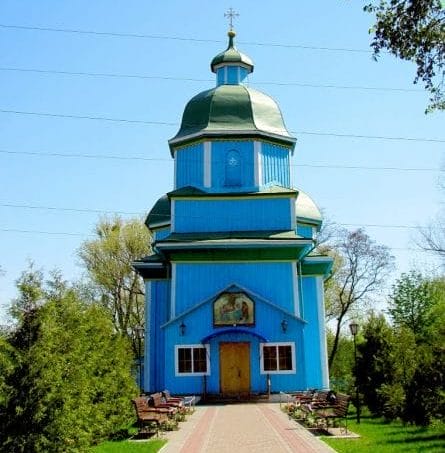
The Church of St. Volodymyr is no less interesting. Today, it is considered to be the first of the restored Greek-Catholic communities on the territory of Volyn and Polissia.
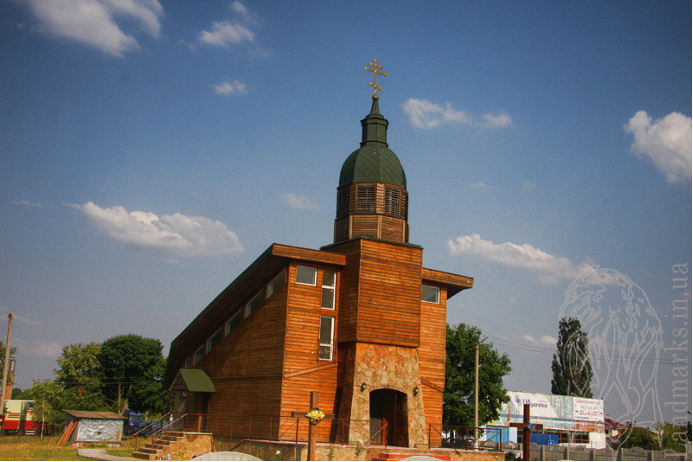
In 1913, the foundation for the future cathedral was laid in the railroad park. Later, the Holy Intercession Cathedral was built here.
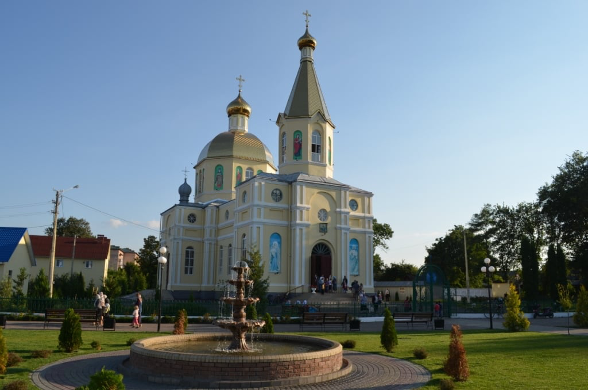
The Sarny Historical and Ethnographic Museum, a communally owned institution, is the center for the preservation and popularization of the cultural heritage of the Sarny area. It holds over 8,000 exhibits which include products of traditional Polissian trades: pottery, cooperage, wicker weaving, wood carvings, weaving on looms, and a collection of old clothes. The main highlight of the museum is the skansen (open-air museum) where visitors can see a village pub, a hut with a stove but no chimney, a peasant’s house, a forge, a mill, a UPA hideout, and an ancient chapel.
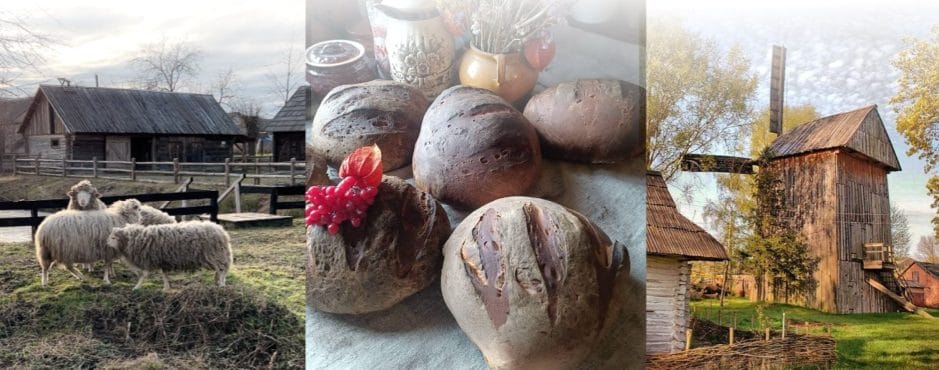
Economy and Welfare
Economic and entrepreneurial activities in the Sarny urban territorial community are carried out by machine-building and metalworking enterprises, food industry, and woodworking industry.
There is a metal products plant in the community. The enterprise is capable of producing up to 4,000 tons of metal structures per month. The plant is equipped with advanced modern equipment, and the production includes equipment for metal cutting, bending, punching, stamping, etc.
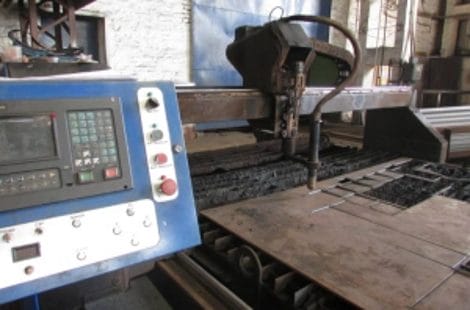
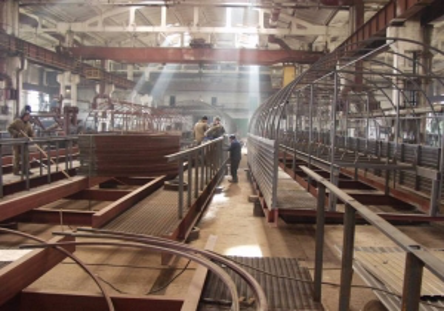
The main activities of individual entrepreneurs include trade (wholesale and retail), agricultural production, logging, transport, household and catering services.
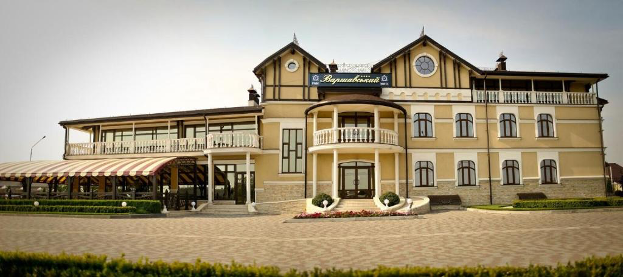
Pragma Factor, which is located on the territory of the community, is part of the PlasmaTech Group. It is engaged in the production of high-quality welding materials. The PlasmaTech Group is a recognized leader in the production of welding materials in Eastern Europe and Central Asia. Annually, 50,000 tons of welding electrodes and welding wire are released from the conveyor.
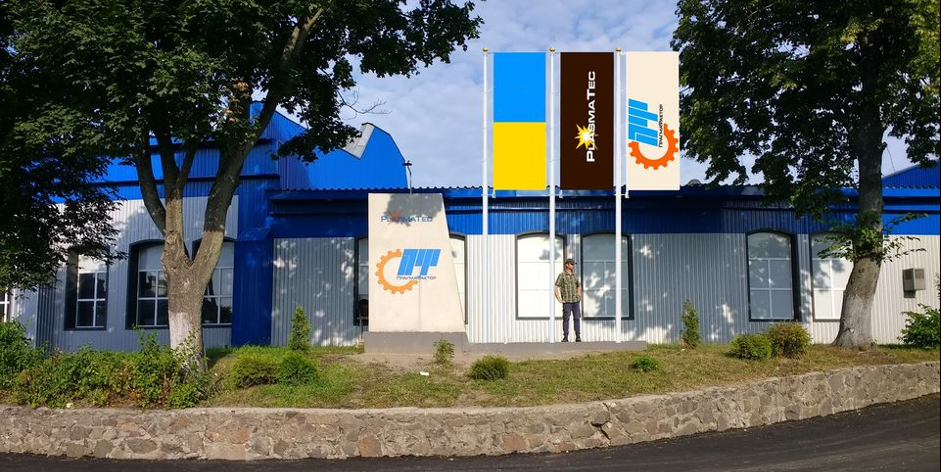
Community and War
russia’s invasion of Ukraine undoubtedly activated the international community, but the main challenge fell on state authorities and local communities. Despite significant financial difficulties, as well as social stress, the Sarny community was able to organize a powerful volunteer movement and delivery of humanitarian aid to the frontline communities.
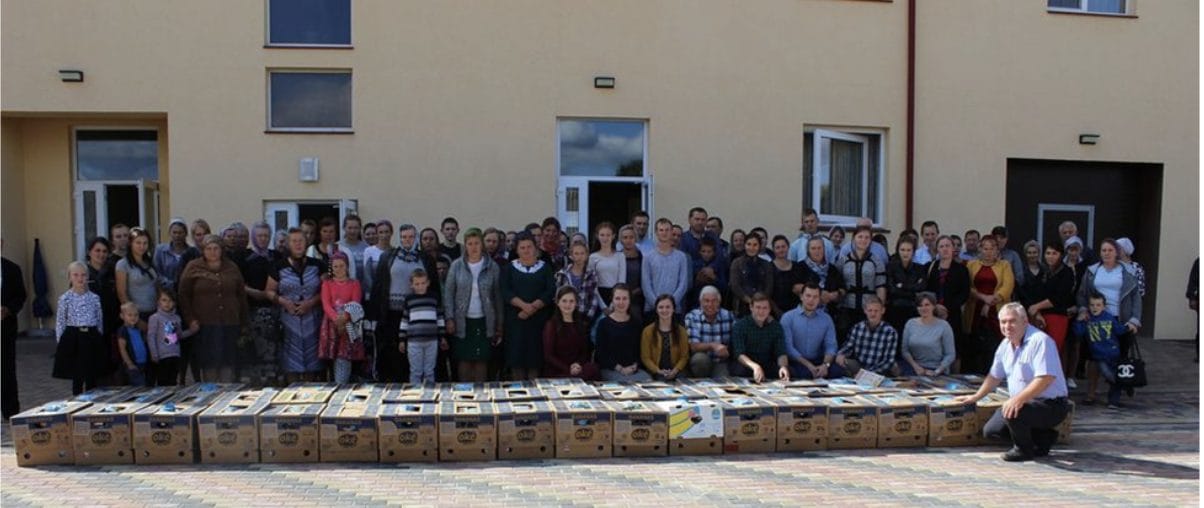
During the period of martial law, the activities of public organizations intensified. In cooperation with residents, local self-government bodies and charitable foundations, including foreign ones, volunteer work was organized to provide residents of the regions affected by the full-scale invasion with food, hygiene products, etc.
Volunteer work was also organized to provide servicemen of the Armed Forces with special equipment, cars, food, medicine, clothing, etc.
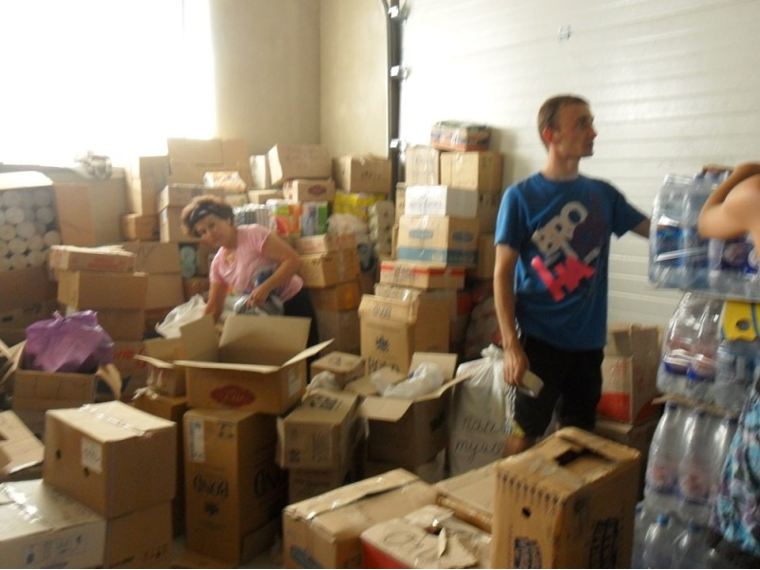
The collection point continues to receive aid from the population of Sarny area for military personnel performing tasks in the areas of hostilities in the East of Ukraine.
In two days, so many pelmeni and dumplings are made here that they cannot fit into four large freezers. From there, semi-finished products are transported to the House of Prayer. Everything is checked and weighed there, each box is signed and dated. On the spot, the volunteers form humanitarian cargoes to those population centers that need them.
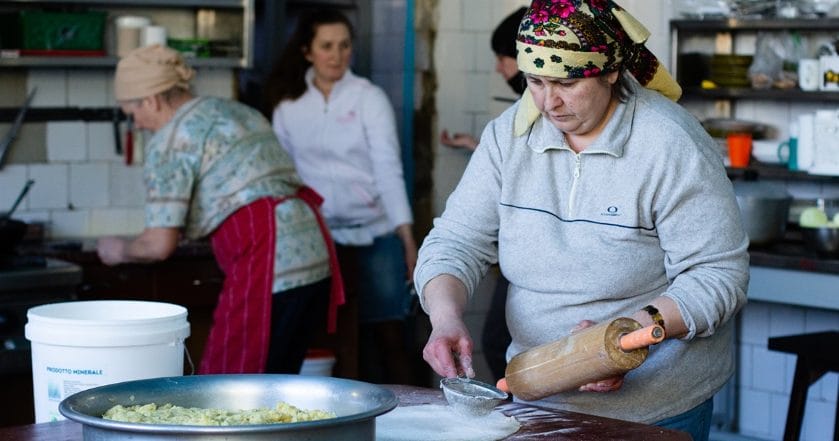
The community’s efforts were aimed at organizing assistance to residents, creating a humanitarian center to coordinate actions and meet the needs of displaced people, as well as help the military and civilian population.
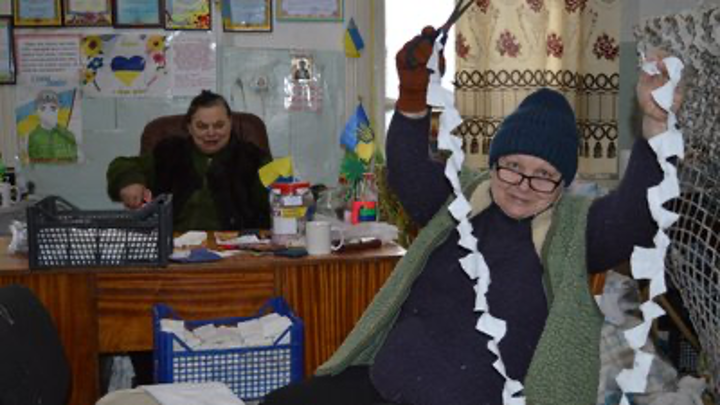
Sarny Volunteer Center NGO has been operating since 2015. Here they manufacture, purchase, and deliver what is needed by the military and civilians on the front line and in the frontline regions
In addition to on-site work, volunteers from Sarny organize trips to the frontline regions. They deliver what the military and civilians need: medicines, products, clothing, construction materials, and equipment.

The process of receiving internally displaced persons (IDPs) has become a priority. These people had lost their homes because of the war, and it was necessary to provide them with housing, food, medical care and psychological support. Thanks to the joint efforts of local self-government bodies, individual citizens, organizations and volunteers, the Sarny community was able to provide temporary housing and basic necessities to IDPs. There are 3 places of compact living and integration spaces for IDPs operating in the community.
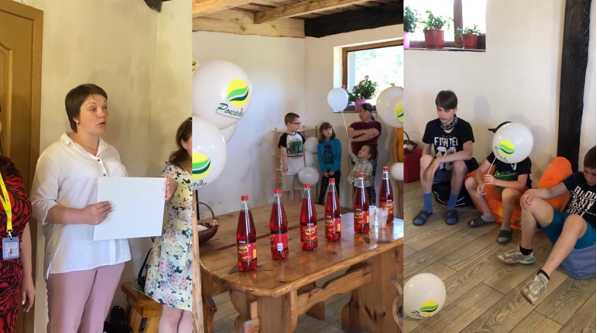
A space for games and master classes was created on the territory of the residence of IDP families. Classes are held at the location to integrate children into the community.
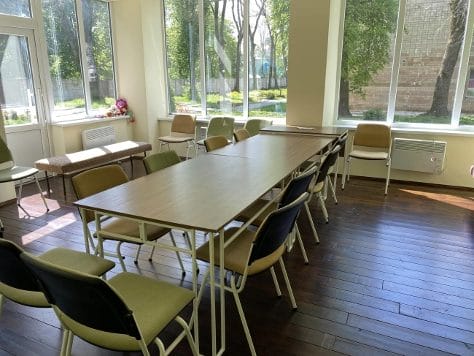
Thanks to the efforts of charitable organizations and volunteers, the displaced persons are provided with all the necessary conditions for living
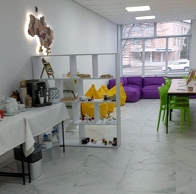
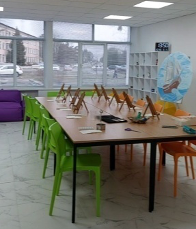
The space was created for the integration of young people from among those who were forced to leave their homes and now live in the population centers of our community. Vibe provides high-quality leisure time to preserve the resourcefulness, because young people are the main human capital. These are the ones who will restore Ukraine after the Victory.
The IDPs in the community are provided with the following social services: medical aid, provision of education for children, employment at local enterprises, state support through the employment center for starting private businesses.
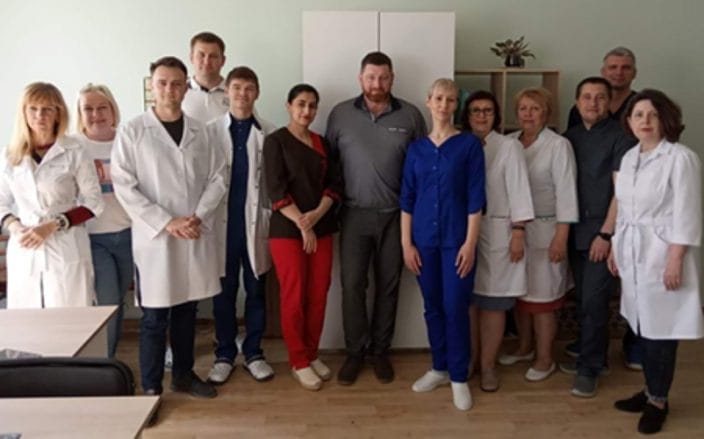
Cultural and mass events are also held for IDPs in the community for their adaptation and integration into the local community.
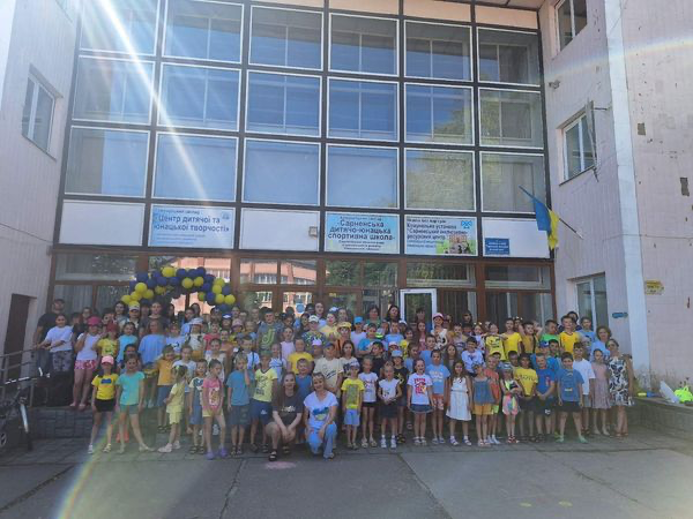
During the war, 3 rocket attacks were made on the town of Sarny, as a result of which residential buildings, social infrastructure and private business buildings were damaged. The blast wave and shrapnel damaged 66 private households, 6 health care facilities, 3 educational facilities, 25 shopping and entertainment facilities, and 1 housing and utility facility.
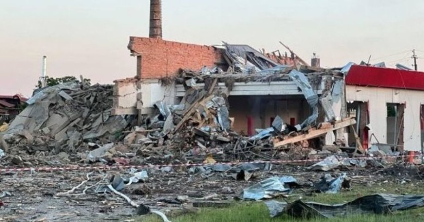
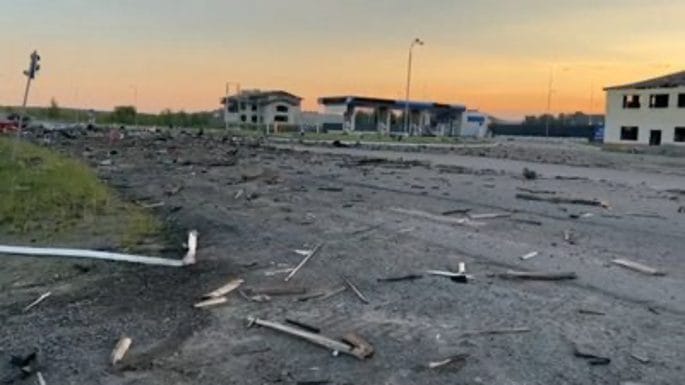
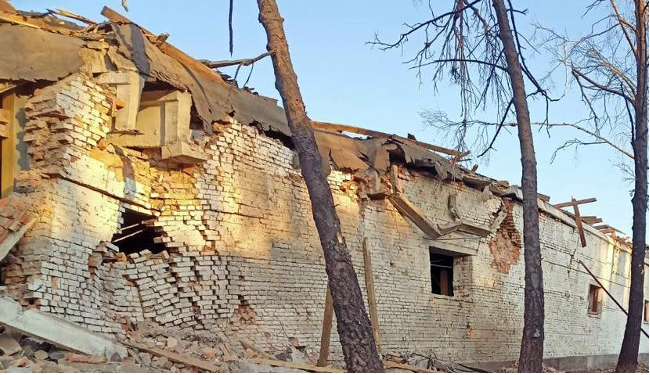
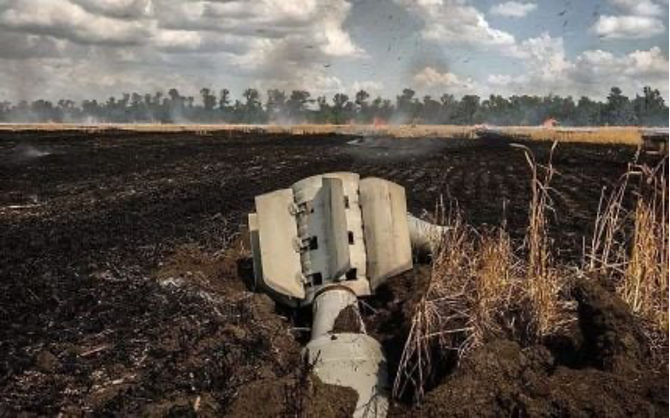
Since the beginning of the full-scale russian invasion, UAH 110 million has been allocated from the budget of the Sarny urban community to support the Armed Forces of Ukraine and ensure the defensive capacity of the community’s territory.
Men and women of the community joined the ranks of the Armed Forces and now defend Ukraine. Many courageous heroes laid down their lives for the defense of the Motherland. The community will always remember its heroes and take care of the families of the fallen.
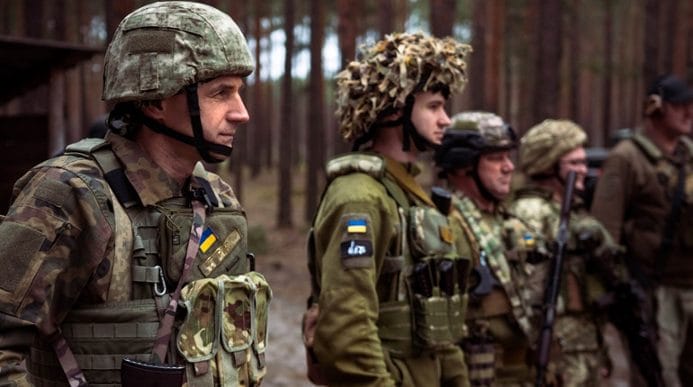
People of the Community
Ruslan Serpeninov has held the post of Head of the Sarny territorial community since 2020.
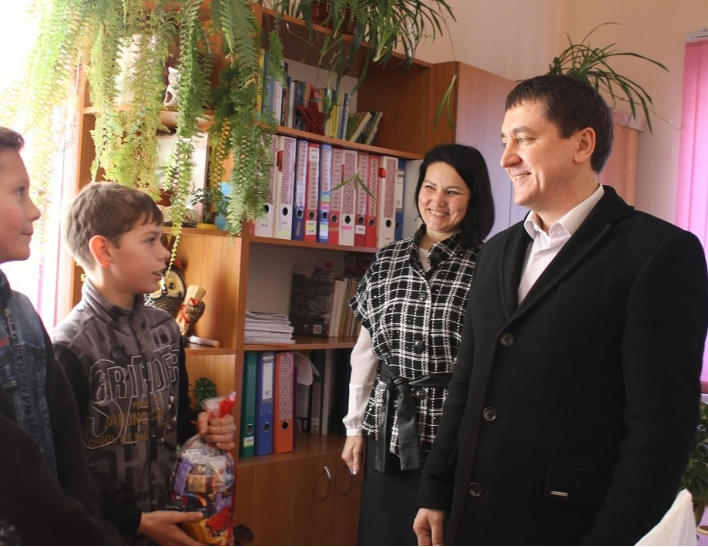
The mayor’s activities are aimed at the development of the community through the implementation of digital approaches in strategic planning and reconstruction, as evidenced by the successful implementation of socially important projects in the conditions of early recovery. The leader’s goal is to build a future in which the community will turn into an epicenter of growth and prosperity, where innovative approaches and digital solutions ensure sustainability and harmony.
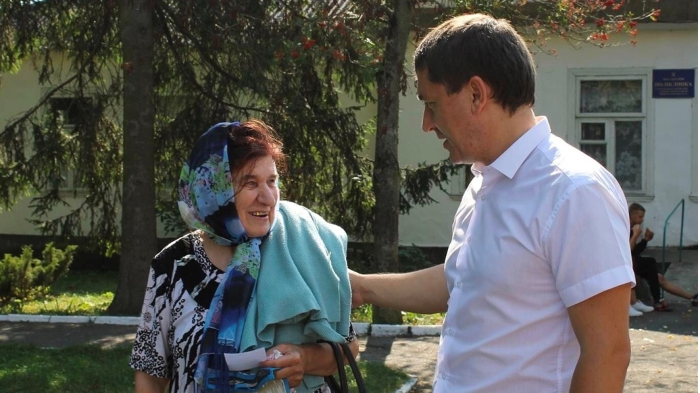
A good example is the Pro Mental_Health project implemented in the community to create a psychosocial support center with the participation of the International Solidarity Fund (Republic of Poland) in partnership with BGK (Bank of Regional Economy), the European Commission and the Support for Democracy program of the Ministry of Foreign Affairs of the Republic of Poland.
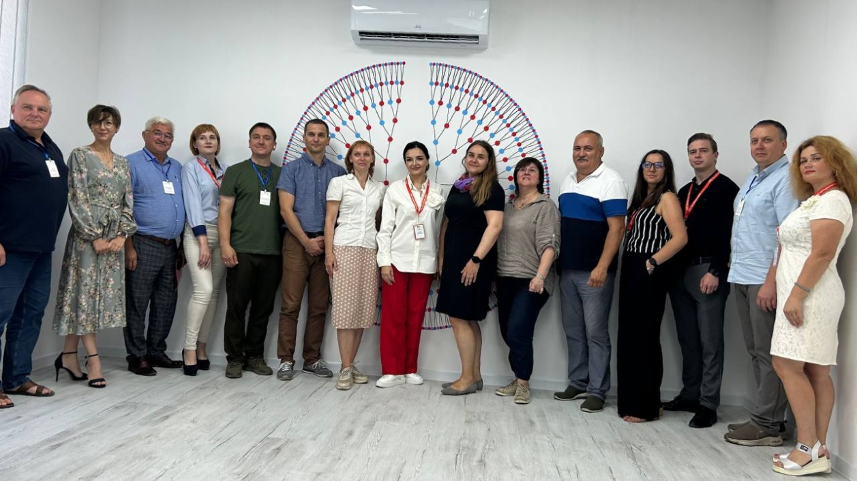
The Life center provides psychological support to military personnel and members of their families, and also conducts group trainings for representatives of professions that have a high psycho-emotional load. Also, a community of people who want to get rid of alcohol addiction operates on the basis of the center. In the institution, you can get a consultation from a psychiatrist and a physical rehabilitation service.
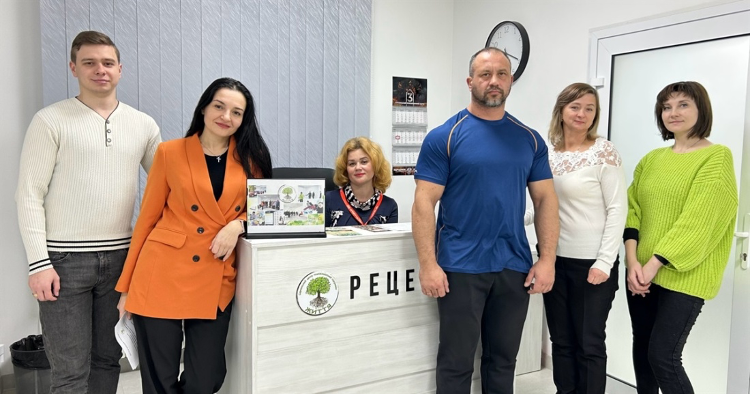
The community presents a number of opportunities in civilian life for veterans and their families. As part of the “Sarny Valor” (Sarnenska Zvytiaha) adaptation event, the community presents thematic locations where they can get a variety of information on social and legal support, mental health, and veteran sports.
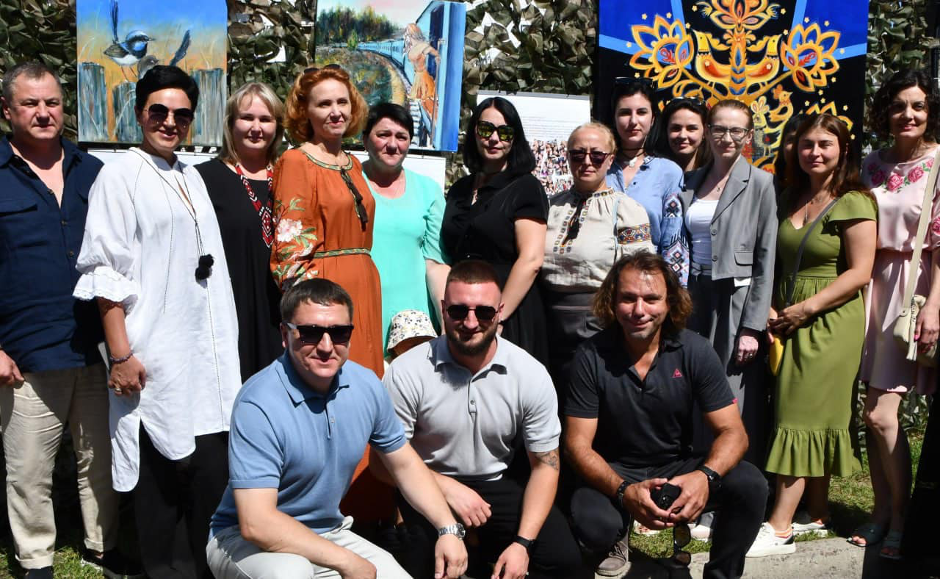
Dance groups from the Sarny area win awards at international and all-Ukrainian competitions and participate in the international project “Days of Ukrainian Culture in Spain”.
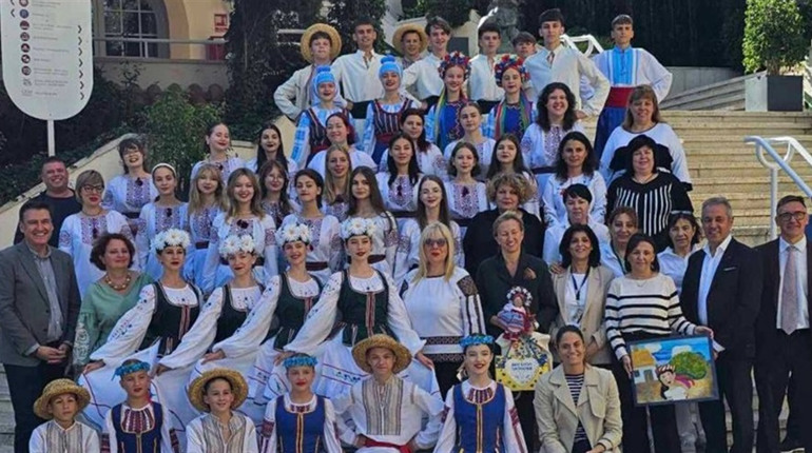
The Sarny urban territorial community pays a lot of attention to the care of the environment. Talks are held regularly, combining the youth community with public organizations, employees of enterprises, institutions, organizations, and local businesses.
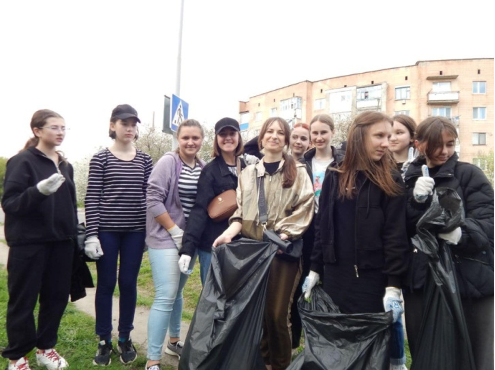
Day camps worked in every village of Sarny district. There is a theater, a choir of live music, which formed the Volya band.
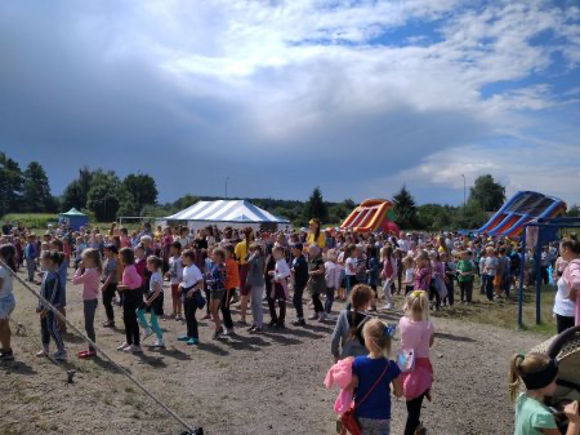
Development Strategy
The community has prepared the Strategy for the Development of the Sarny Urban Territorial Community until 2027.
The Sarny community is a dynamic center of the Rivne region, where the unique beauty of Polissian landscapes and modern innovative infrastructure solutions are combined. Here, harmonious coexistence with the natural environment and access to quality education, medical services and comfortable living infrastructure are ensured for every resident and guest. The community actively collaborates and supports local entrepreneurship and industry, creating stable economic conditions for investment and new partnerships. The Sarny territorial community strives to become an example of sustainable development, preserving the unique identity of the community and supporting the initiatives of each individual.
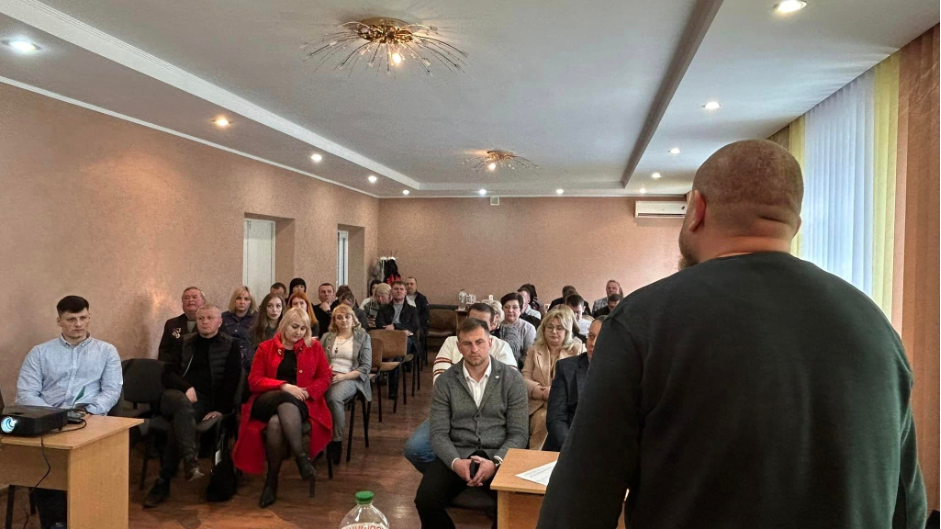
The mission of the Sarny community is to create a stable, prosperous and harmonious environment for the life, work and development of each of its residents. The community seeks to develop as a center of socio-economic growth, ensuring the creation of new jobs, support for local businesses and integration into regional and national economic processes.
“An important aspect of our activity is the preservation and development of cultural heritage, natural wealth and historical values, which are part of our unique identity. We are committed to providing access to quality education, effective healthcare, and innovative infrastructure, which together will improve the quality of life of our residents. Our community is designed to be a place where everyone can find opportunities for personal and professional growth, feeling supported and involved in the joint development of our native land.” – the community strategy says.
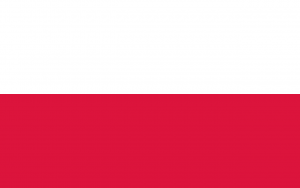

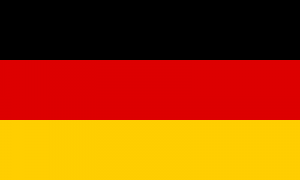
List of Sources
- sarny.rayon.in.ua/news
- suspilne.media/rivne
- sarnynews.city/tests
- rkc.in.ua
- history.rayon.in.ua/news
- ukrainaincognita.com
- sarny-rada.gov.ua/diyalnist
- sarni-sob.church.ua/istoriya/
- map.ugcc.ua
- rkc.in.ua
- euroformatsteel.com
- suspilne.media/rivne
- sarnynews.city/articles
- rivne.media/news
- provinciyka.rv.ua
- facebook.com
- tsn.ua
- sarnynews.city/articles
- rivnepost.rv.ua
- sarnynews.city
- sarnynews.city/articles
- facebook.com
- sarny-rada.gov.ua/pres-centr
- sarnynews.city/articles
- sarny.rayon.in.ua
